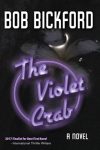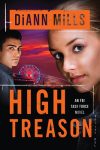

February 19 – 25: “Do you have a writing mentor?”
 This week ITW Members Bob Bickford, DiAnn Mills and J. H. Bográn dish on mentors. Do you have a writing mentor? What’s the best lesson you’ve learned from your him or her? Scroll down to the “comments” section and follow along with the discussion!
This week ITW Members Bob Bickford, DiAnn Mills and J. H. Bográn dish on mentors. Do you have a writing mentor? What’s the best lesson you’ve learned from your him or her? Scroll down to the “comments” section and follow along with the discussion!
~~~~~
 When he was little, Bob Bickford haunted the library. He hunted for good stories, got lost in pages, and daydreamed about becoming a writer. When he got older, real life got in the way and paychecks became more urgent than classes or degrees. The dream was filed under ‘impossible things’, and nearly forgotten. After years spent in various corners of the United States and Canada, he dusted off his imagination and became a writer-by-night. He hunts for good stories once again, and he still haunts the library.
When he was little, Bob Bickford haunted the library. He hunted for good stories, got lost in pages, and daydreamed about becoming a writer. When he got older, real life got in the way and paychecks became more urgent than classes or degrees. The dream was filed under ‘impossible things’, and nearly forgotten. After years spent in various corners of the United States and Canada, he dusted off his imagination and became a writer-by-night. He hunts for good stories once again, and he still haunts the library.
 DiAnn Mills is a bestselling author who believes her readers should expect an adventure. She combines unforgettable characters with unpredictable plots to create action-packed, suspense-filled novels. Her titles have appeared on the CBA and ECPA bestseller lists; won two Christy Awards; and been finalists for the RITA, Daphne Du Maurier, Inspirational Readers’ Choice, and Carol award contests. FIREWALL, the first book in her Houston: FBI series, was listed by Library Journal as one of the best Christian Fiction books of 2014.
DiAnn Mills is a bestselling author who believes her readers should expect an adventure. She combines unforgettable characters with unpredictable plots to create action-packed, suspense-filled novels. Her titles have appeared on the CBA and ECPA bestseller lists; won two Christy Awards; and been finalists for the RITA, Daphne Du Maurier, Inspirational Readers’ Choice, and Carol award contests. FIREWALL, the first book in her Houston: FBI series, was listed by Library Journal as one of the best Christian Fiction books of 2014.
 J. H. Bográn, born and raised in Honduras, is the son of a journalist. He ironically prefers to write fiction rather than fact. José’s genre of choice is thrillers, but he likes to throw in a twist of romance into the mix. POISONED TEARS is his third novel in English and has already garnered positive reviews and recommendations. Jon Land calls it “a splendid piece of crime noir.” Douglas Preston says it’s a first class roller-coaster ride. His other works include novels in both English and Spanish, short stories, screenplays. He’s a member of The Crime Writers Association, the Short Fiction Writers Guild, and the International Thriller Writers where he also serves as the Thriller Roundtable Coordinator.
J. H. Bográn, born and raised in Honduras, is the son of a journalist. He ironically prefers to write fiction rather than fact. José’s genre of choice is thrillers, but he likes to throw in a twist of romance into the mix. POISONED TEARS is his third novel in English and has already garnered positive reviews and recommendations. Jon Land calls it “a splendid piece of crime noir.” Douglas Preston says it’s a first class roller-coaster ride. His other works include novels in both English and Spanish, short stories, screenplays. He’s a member of The Crime Writers Association, the Short Fiction Writers Guild, and the International Thriller Writers where he also serves as the Thriller Roundtable Coordinator.
- LAST GIRL MISSING with K.L. Murphy - July 25, 2024
- CHILD OF DUST with Yigal Zur - July 25, 2024
- THE RAVENWOOD CONSPIRACY with Michael Siverling - July 19, 2024
